Last updated: September 30, 2025
Article
22 in 2022: An Explore Nature Year in Review
As we reflect on 2022, we offer you a list of 22 interesting and exciting science and nature events from parks of the national park system. From a brief, yet dramatic eruption of the world’s largest active volcano to celebrating the 60th anniversary of the National Natural Landmarks program, 2022 was filled with amazing moments.
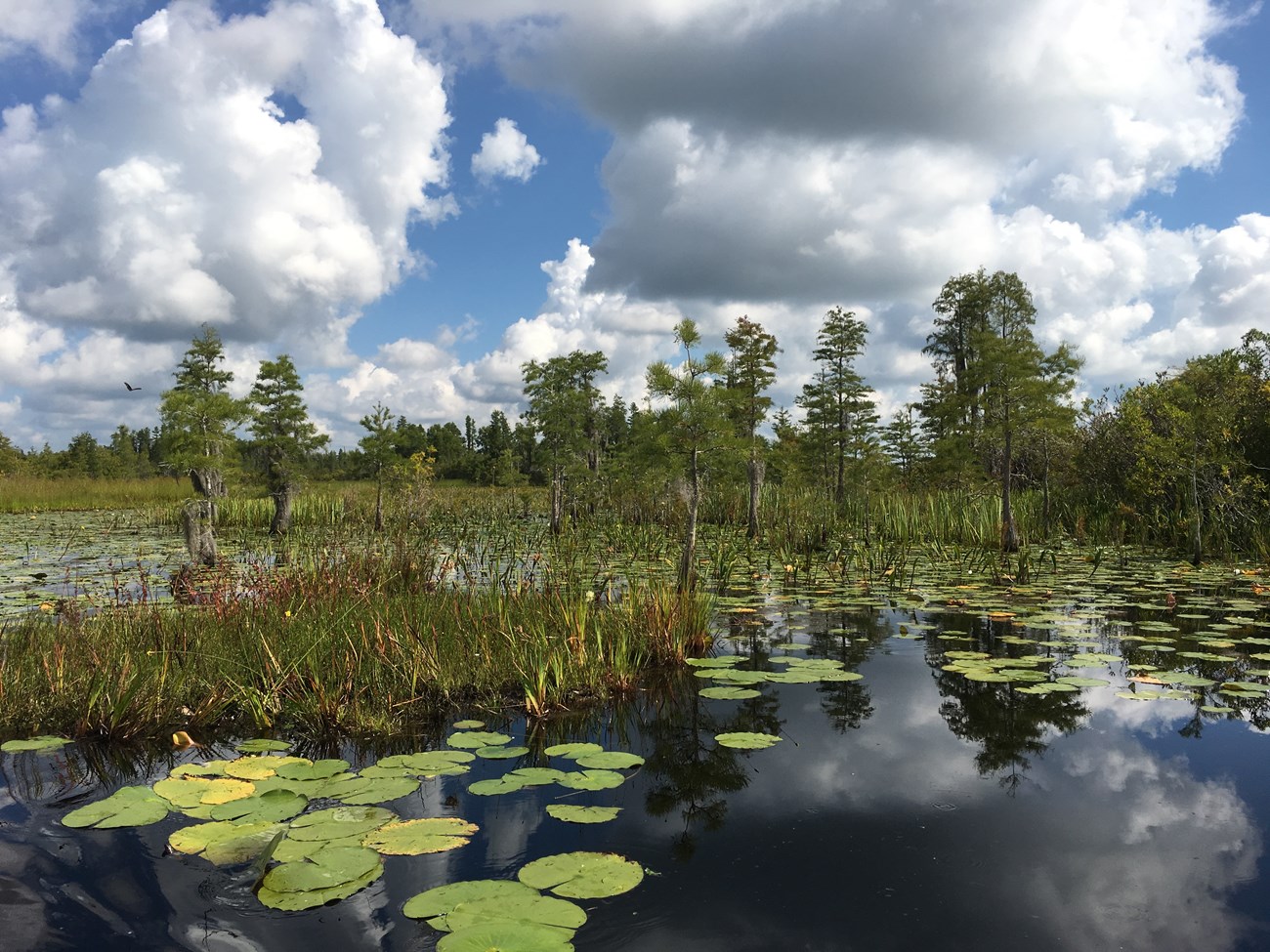
We celebrated some big anniversaries...
1. Cheers to 60 years
Cheers to 60 years! The Natural National Landmarks (NNL) program celebrated their 60th anniversary on May 18, 2022, with events and Illustrating America’s Natural Heritage artwork.
2. Another 60th
The International Affairs Office also celebrated their 60th anniversary this year. Find out how “America’s Best Idea” went global in this first episode of the Park Science Celebrates! podcast series.
3. Half a century of clean water
With another big anniversary, the Clean Water Act turned 50 this year on October 18, 2022. Celebrate 50 years of clean water by finding out what we do and what you can do to help protect clean water in parks and at home.
4. Happy 1st birthday BIL
We also celebrated the one-year anniversary of the signing of the Bipartisan Infrastructure Law (BIL), a historic investment in the restoration and protection of the environment. In Fiscal Year 2022, BIL provided $15 million for ecosystem restoration activities in national parks with much more to come in 2023!

NPS
...and some big accomplishments...
5. Recognizing contributions
The outstanding contributions of individuals in understanding, protecting, and managing park resources were recognized with the 2020 & 2021 Director’s Awards for Natural and Cultural Resources.
6. An NPS Dark Sky Defender
National Park Service scientist, Bob Meadows, was awarded the Dark Sky Defender Award from the International Dark Sky Association for his contributions to the state of knowledge of natural nocturnal environments in national parks. Check out the over 600 sites where the Natural Sounds and Night Skies Division has collected night sky data.
7. Celebrating Chonk
The beloved annual competition of chonk, Fat Bear Week, won a Webby from the International Academy of Digital Arts and Sciences. Fat Bear Week swept both the People’s Choice and the Jury Award in the Social/Events and Livestreams category.
8. Hard work pays off
The Scientists in Parks Program (SIP) successfully completed its second year and placed a total of 253 participants in 152 parks across the country. SIP intern work contributed 154,731 service hours, or the equivalent of 74 years of full-time work on natural resource science projects. Learn more about the SIP program and apply today! Applications are open until January 22, 2023.
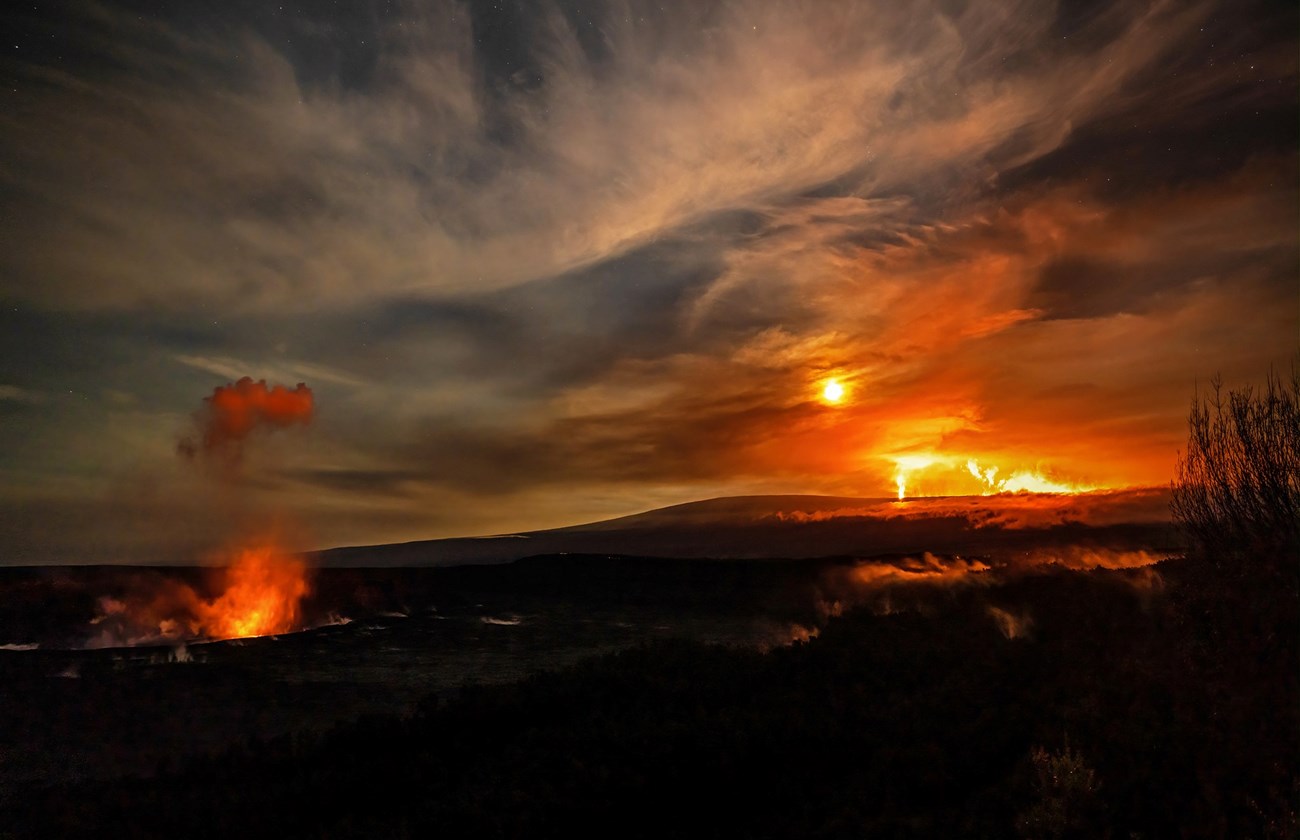
NPS/Janice Wei
We were awed and inspired by nature...
9. An unforgettable eruption
In late 2022, the largest active volcano in the world, Mauna Loa, erupted for 12 unforgettable days from November 27 to December 13. This was the first eruption of Mauna Loa since 1984.
10. Two natural phenomena at once
Two natural phenomena at once! In November, the skies above Glacier Bay National Park and Preserve awed onlookers as a total lunar eclipse turned the moon orange as the Aurora Borealis pulsed glowing green patterns across the sky.
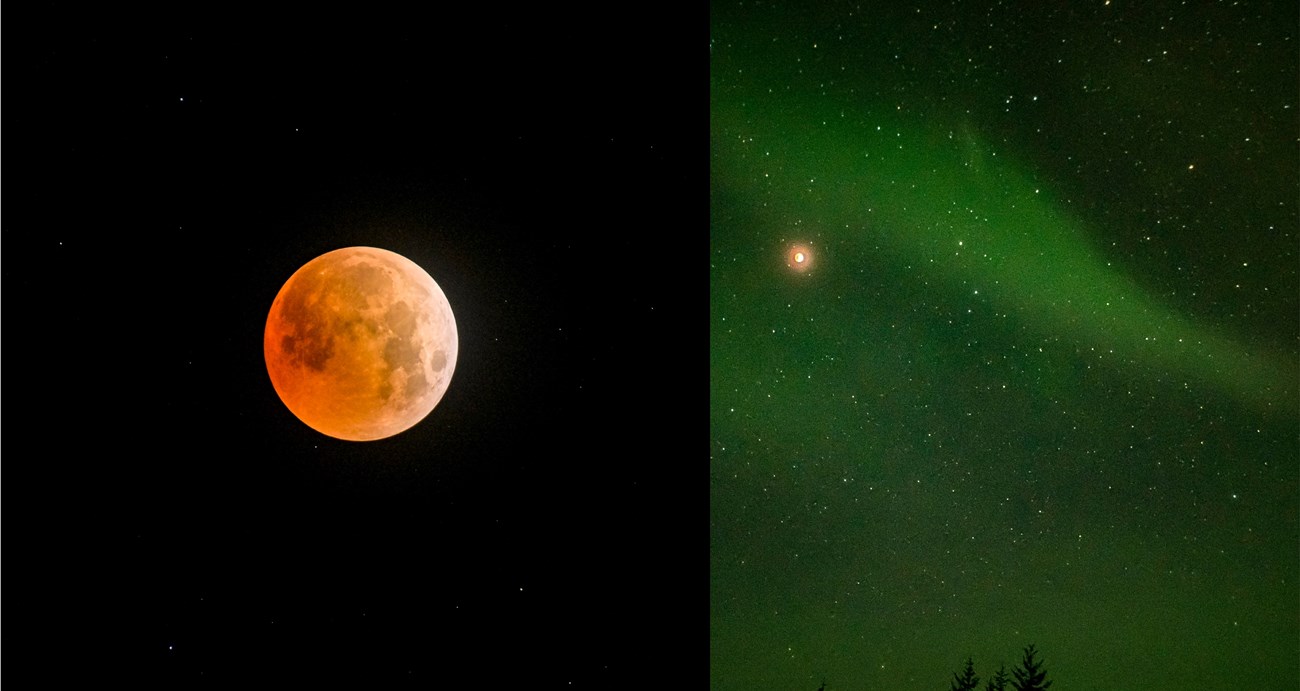
NPS / S. Tevebaugh
11. Goodbye, P-22
We said goodbye to mountain lion P-22 in December 2022. More than just a celebrity cat, he was a valuable ambassador for the cause of connectivity and for the wildlife in the Santa Monica Mountains and beyond. Goodbye, P-22. Your scientific legacy will live on
12. The peaceful beauty of nature
From sunrise to sunset, nature provided so many opportunities to enjoy moments of Zen. Such as this sunrise that rang in the winter solstice at Big Bend National Park.
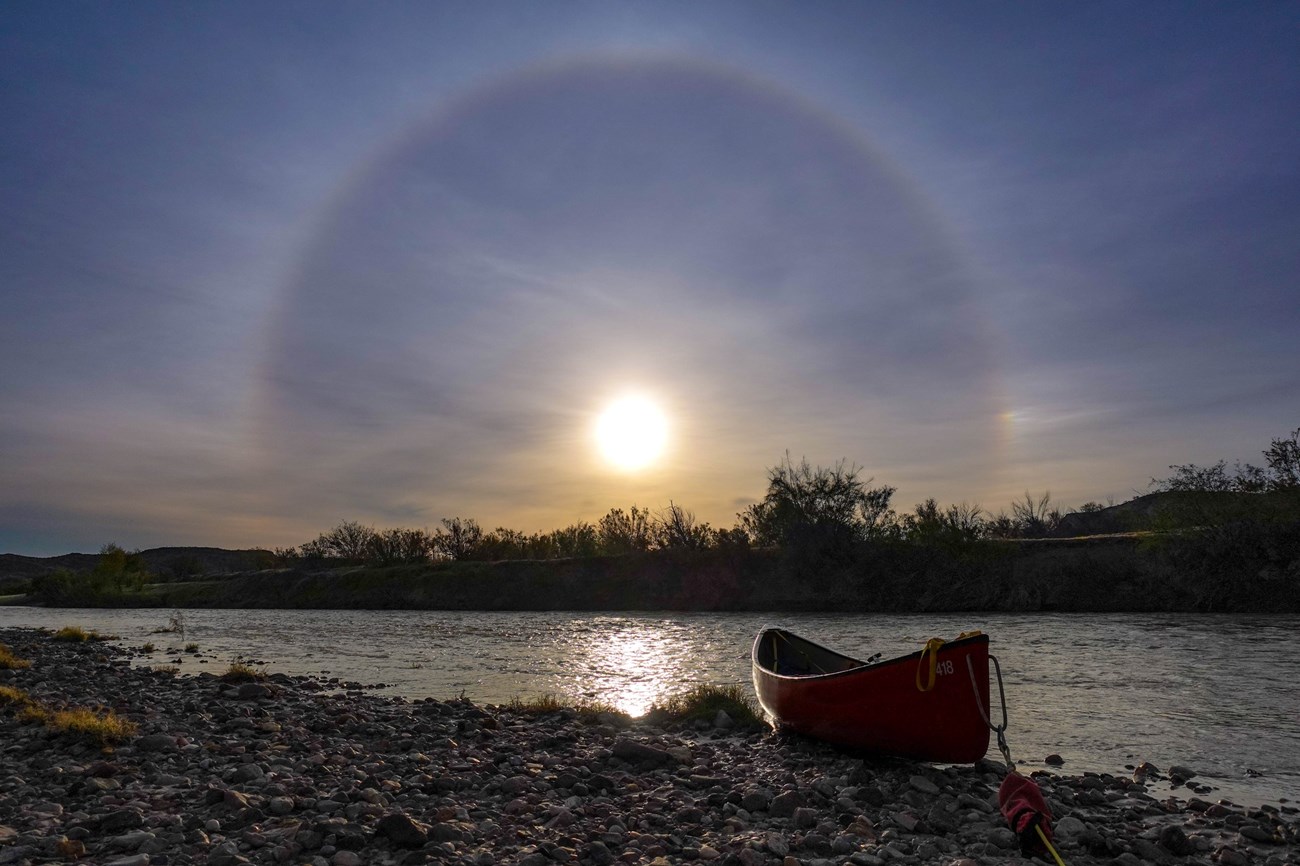
NPS / K. Mahoney
...and conservation wins....
13. Phasing out plastics
On World Ocean Day, Secretary Haaland issued Secretary’s Order 3407, which aims to reduce the procurement, sale and distribution of single-use plastic products and packaging, with the goal of phasing out single-use plastic products on Department-managed lands by 2023.
14. Saving Hawaiʻi forest birds
The Department of the Interior announced a multiagency strategy for preventing the imminent extinction of Hawai’i forest birds. It includes more than $14 million in funding from the Bipartisan Infrastructure Law (BIL) and other appropriations to address avian malaria, which causes widespread mortality of endemic honeycreepers and other forest birds. Learn more about the fight to save rare and endemic forest birds in Haleakalā National Park in the Heart of Maui.
15. Protecting western monarchs
The 2022 monarch count brought good news—250,000 in the core area of central California compared to just 2,000 monarchs counter in 2021. However, the increase wasn’t seen everywhere. In June, the Department of the Interior committed to urgent actions to conserve monarchs. Staff at Golden Gate National Recreation Area, as well as other western parks, are actively working to protect western monarchs.
16. Conservation in your community
The National Park Service Connected Conservation (C2) community held a Simple Conservation Action webinar mini-series to show how people can help parks and conserve nature with sustainable living practices, responsible recreation, being a volunteer, and by motivating one another to take conservation actions. Recordings of this webinar series and other C2 series are available to the public.
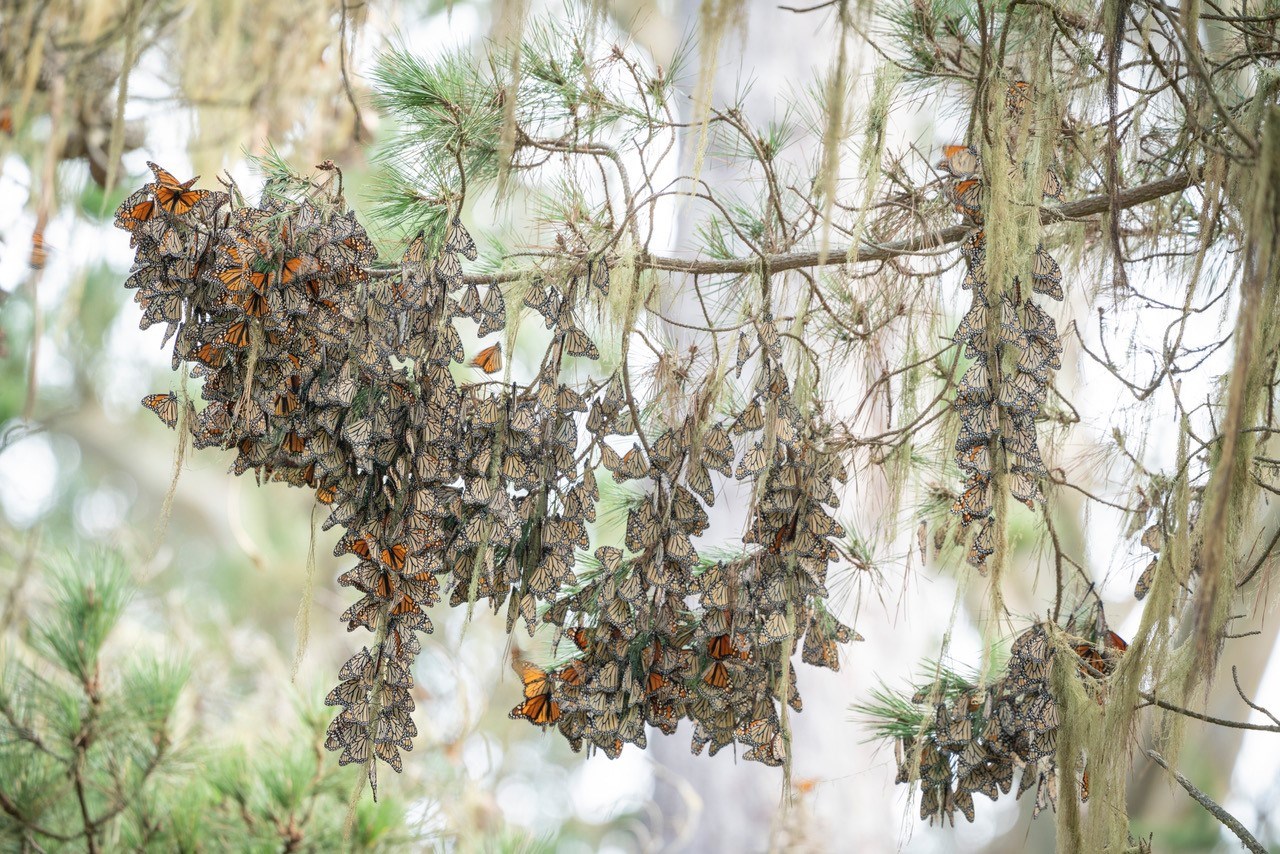
Sharon Beals
...And we connected curious minds with science in parks...

17. It's okay to say I Didn't Know That!
We broke down the sometimes ambiguous and obscure rules of recreating in the outdoors and encouraged visitors to “pass it on” with the Explore Nature series I Didn’t Know That!
18. Outside Science (inside parks) continues
The Outside Science (inside parks) series continued with five new episodes covering everything from synchronous fireflies to digging for fossils. Each episode, produced in collaboration with Colorado State University, highlights the many ways young people get involved in science in parks. Watch the 5 new episodes and more.
19. Invasive species artfully explained
We discovered the difference between native species, non-native species, invasive species, and pests in this informative invasive species video with beautiful artwork.
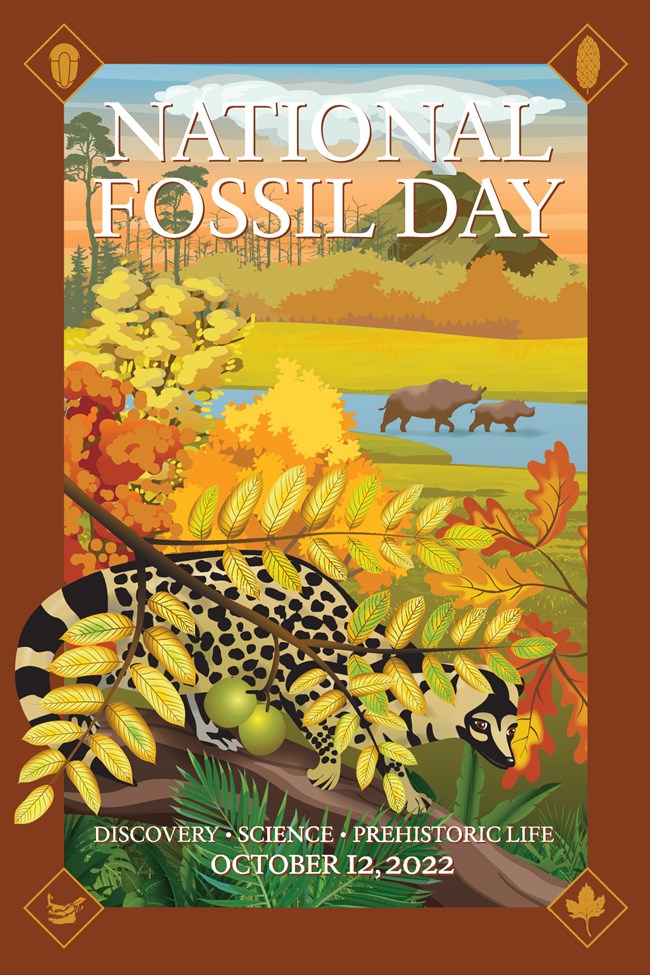
20. Bring the past to life through art
This year’s National Fossil Day Artwork depicted a scene from the Yellowstone Eocene Forest with Fall coloration, an early cousin of today’s modern carnivorous mammals, and large herbivorous titanotheres. Find out more about the science behind the art.
21. Dendrochronology in parks
Did you know the field of science called dendrochronology (or the study of tree rings to understand the past) began in several national parks in the Southwest? Learn about National Parks in the History of Science and how dendrochronology can help scientists understand past climates, ecosystems, and cultures.
22. A new issue of Park Science Magazine
A new issue of Park Science Magazine was released in summer 2022. In this issue, we look at how science helps us restore landscapes, heal old wounds, and form new friendships across the globe. Check out the Summer 2022 issue and be on the lookout for a new winter issue coming soon.
It's a wrap!
All in all, this was another exciting year for scientific exploration and nature in national parks. We can't wait to see what 2023 will bring!
What would you add to this list?
How will you explore nature this year?
